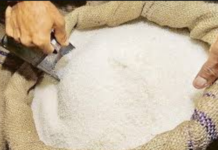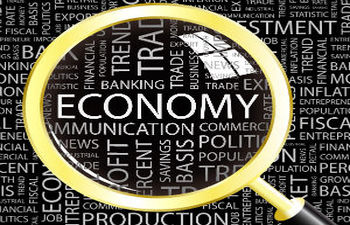ISLAMABAD – One day before he presents perhaps the most important budget Pakistan has had in a decade, finance minister Ishaq Dar unveiled the Economic Survey of Pakistan 2022-23 which presented a bleak picture of the year that was.
With depleting forex reserves, strict import restrictions that have crippled industry, a stalled IMF programme, and political chaos that has caused significant loss of confidence in the country Pakistan’s economy grew by a paltry 0.29% in the outgoing year falling well short of the 5% targeted growth.
Addressing the dire state of the economy inherited by the current coalition government, Minister Dar emphasized that the previous administration left behind an economy plagued by severe macroeconomic imbalances and lacking credibility, making it challenging to establish favorable international deals. However, through paying a political cost, the coalition government managed to save the country from default. Despite numerous constraints, the gross domestic product (GDP) recorded a positive growth of 0.29% in the outgoing fiscal year.
Minister Dar commended the government’s successful implementation of structural reforms in various sectors, including power and gas, fiscal policies, and education. These reforms, pending for several years, had previously been neglected by the previous government. Minister Dar highlighted the ongoing Research on Improving Systems of Education (RISE) program and announced significant financial support for Pakistan from the World Bank and the Asia Infrastructure Investment Bank once the International Monetary Fund (IMF) program resumed after necessary reforms were completed.
The finance minister highlighted significant improvements in the country’s financial indicators. The primary deficit of Rs 890 billion during the last year’s ten months had transformed into a surplus of Rs 99 billion, while the current account deficit witnessed a substantial improvement of 76%, decreasing from $13.7 billion to $3.3 billion.
Minister Dar acknowledged the negative impact of the global economic scenario on Pakistan’s progress, with a decline in global GDP growth from 6.2% in 2021 to 2.8% and a rise in global inflation by 85% from 4.7% in 2021 to 8.7% in 2022. Global trade growth also declined by five times from 9.4% in 2021 to 1.7% in 2023.
Highlighting the challenges faced by Pakistan due to the unprecedented floods that occurred last year, Minister Dar mentioned efforts underway to rebuild the damaged infrastructure in the affected areas, with the planning minister and ministry actively working towards that goal.
Regarding the exchange rate, Minister Dar suggested the presence of hidden forces artificially keeping the Pakistani rupee undervalued. He urged hoarders to bring back dollars to the market, as the price was expected to decrease soon. Minister Dar estimated that the PKR was undervalued by at least Rs 45 per dollar and called on the media to create awareness among the masses regarding this issue.
Minister Dar also discussed debt repayment, noting that the government had repaid around $6.5 billion of public debts during the last year, including non-sovereign debts and bond payments. He outlined the government’s efforts to support vulnerable sections of society, such as increasing the Benazir Income Support Programme (BISP) stipend and introducing a Ramazan Relief Package for deserving families. The government had also disbursed Rs 1,750 billion in agriculture credit out of the Rs 2,000 billion Kissan Package.
In terms of trade, Minister Dar revealed that decisions had been made to engage in barter trade with Iran, Afghanistan, and Russia, with the aim of improving Pakistan’s current account balance. However, he mentioned that flash floods in 2022 had negatively impacted the agriculture sector, resulting in a growth rate of 1.55% compared to 4.27% the previous year. The Large Scale Manufacturing (LSM) sector also faced challenges, witnessing a decline of 8.11% during Jul-Mar FY2023, in contrast to a growth rate of 10.6% in the same period last year.
Despite the current economic challenges, Minister Dar emphasized the government’s commitment to achieving macroeconomic stability and establishing a resilient and inclusive growth trajectory that would foster investor confidence, improve market sentiments, and enhance perceptions about Pakistan’s economy.
FBR Tax Collection:
As per the economic survey tax revenue increased by 16.1% during the period from July to April, reaching Rs 5,637.9 billion compared to Rs 4,855.8 billion in the previous year. However, the collection fell short of the government’s target of Rs 7,470 billion for the 12-month period.
Trade Deficit:
The survey documents show Pakistan’s exports declined by 9.9% during the period from July to March, totaling $21 billion compared to $23 billion in the previous year. Imports during the same period decreased by 25.7% to $43.7 billion. The government implemented policy tightening and administrative measures to protect foreign exchange reserves, resulting in a significant reduction in the trade deficit.
Current Account:
The current account deficit decreased by 74.1% during the period from July to March, standing at $3.4 billion compared to $13 billion in the same period the previous year. The improvement was primarily attributed to a substantial decline in import payments.
Fiscal Deficit:
The fiscal deficit was contained at 3.6% of GDP during the first nine months of the fiscal year, compared to 3.9% in the corresponding period of the previous year. The government’s prudent expenditure management and effective domestic resource mobilization strategy contributed to this achievement.
PSDP:
Expenditures for the Public Sector Development Programme (PSDP) declined by 1.8% during the nine-month period from July to March. The allocated funds amounted to Rs 1,014 billion. The next year’s PSDP will focus on projects supporting the 5Es framework, post-flood recovery and rehabilitation, reconstruction efforts, and the China Pakistan Economic Corridor (CPEC).
Inflation:
Inflation reached 28.2% during the nine-month period from July 2022 to March 2023, compared to 11% in the same period the previous year. This was the highest inflation rate ever recorded, affecting all categories except for communication services. Rising global oil prices, exchange rate depreciation, and adjustments in energy tariffs and petroleum levy contributed to the surge in domestic energy prices. Food inflation was primarily driven by higher prices of perishable items.
























